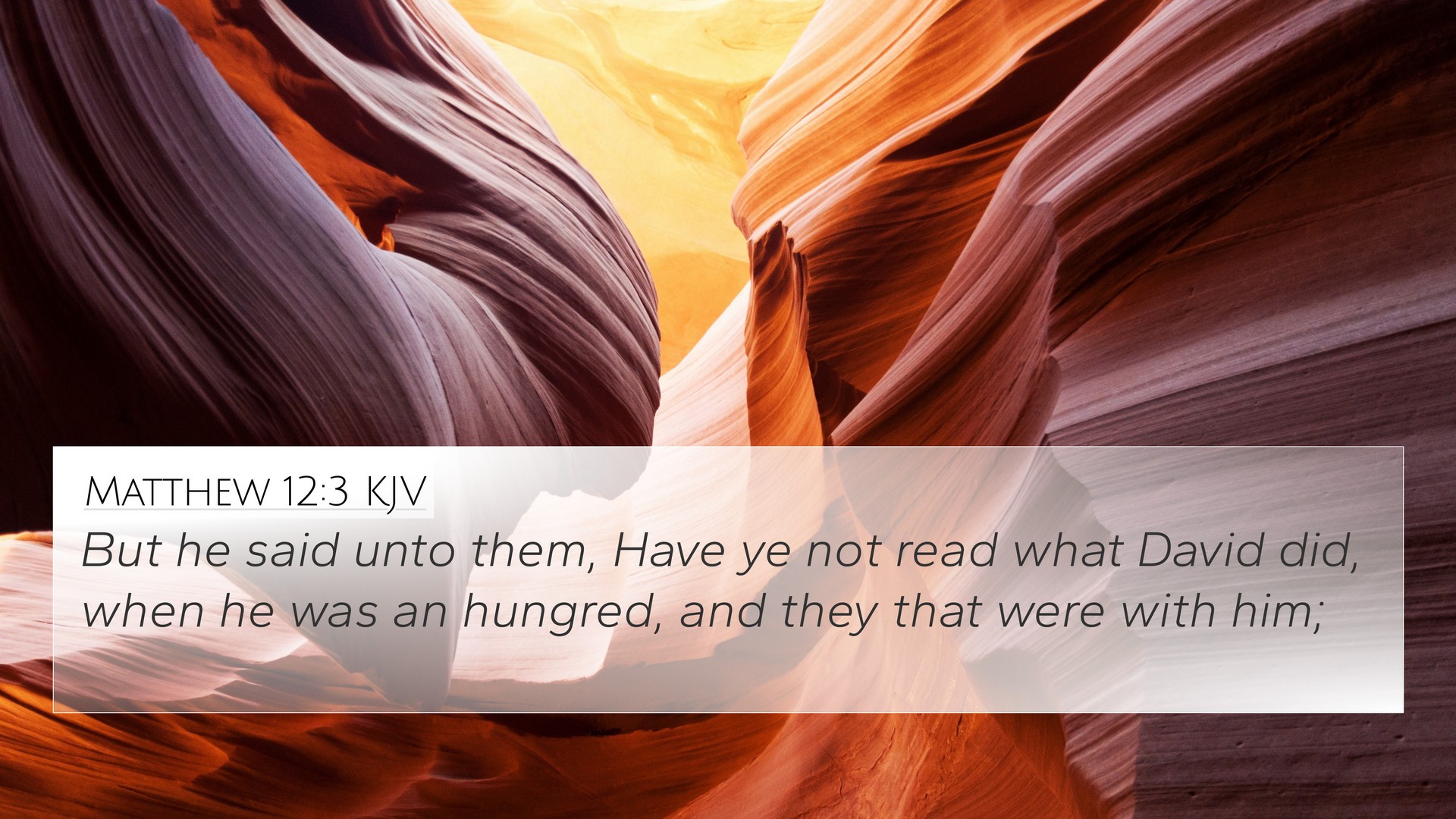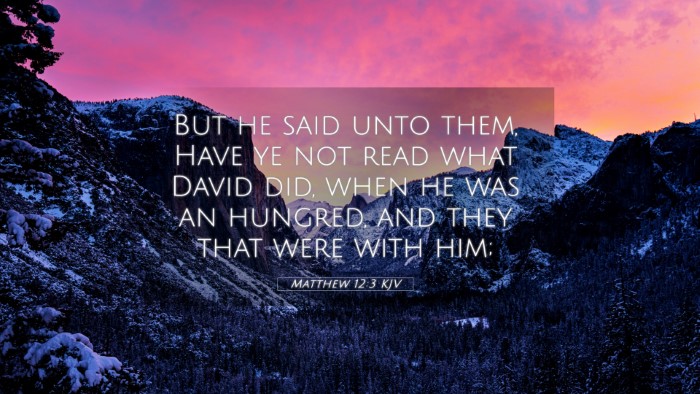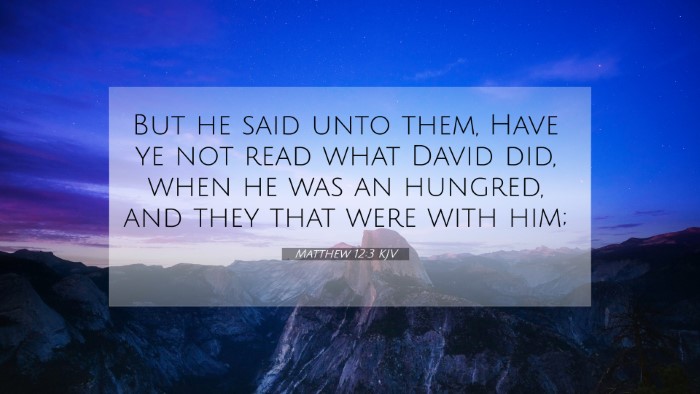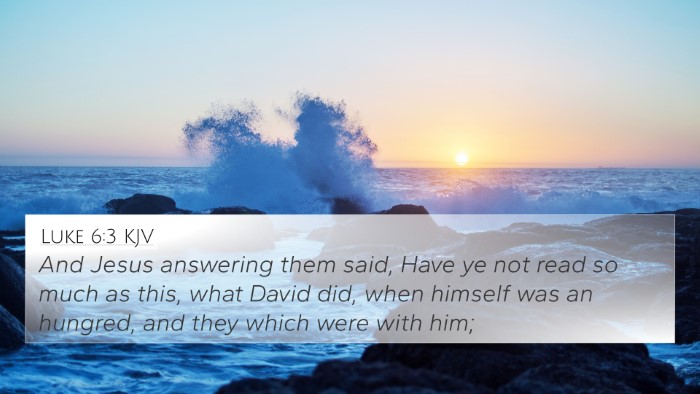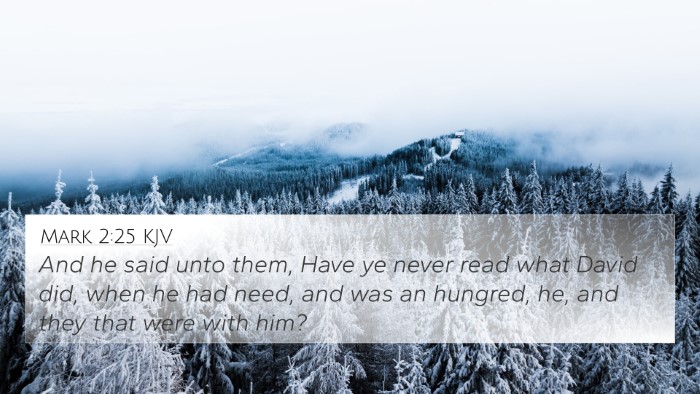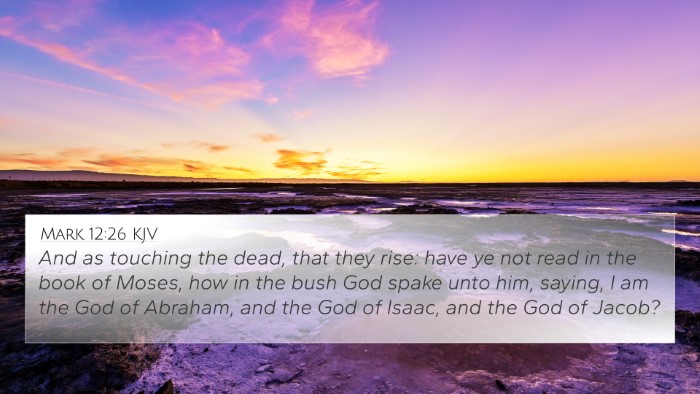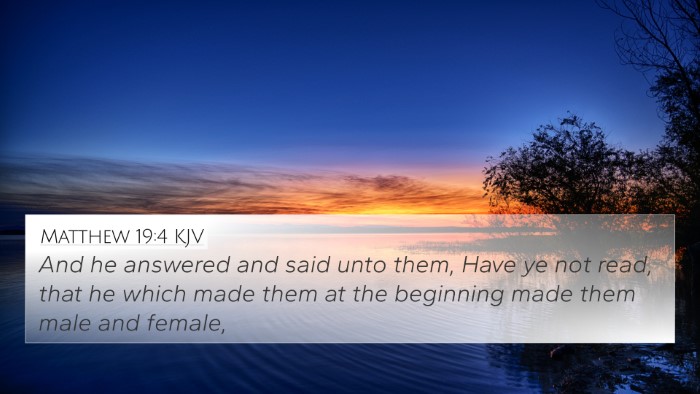Understanding Matthew 12:3
Bible Verse: "But he said to them, 'Have you not read what David did when he was hungry, and those who were with him?" (Matthew 12:3, ESV)
Summary of Matthew 12:3
This verse occurs during an incident where Jesus and his disciples are criticized for plucking heads of grain on the Sabbath. Jesus refers to the actions of David as a defense to illustrate that mercy and human need take precedence over strict Sabbath observance. The reference to King David and his actions highlights the applicability of Scriptural teachings to human situations, affirming a greater law of compassion.
Commentary Insights
-
Matthew Henry:
Henry emphasizes that Jesus’ citation of David underscores the importance of understanding God's law not just in terms of ritual compliance but in light of human need. He points out that while the law commands rest, mercy is a core principle that can override ritualistic practices when compassion is at stake.
-
Albert Barnes:
Barnes notes that the reference to David was significant as it demonstrated that even the most revered figures in Jewish history acted with a sense of need that superseded customary observances. He interprets this as a teaching moment that emphasizes the spirit of the law rather than the letter.
-
Adam Clarke:
Clarke elaborates on the mercy that exists in the understanding of God’s laws. He states that understanding the Scriptures is essential, and using David’s example showcases how the law was intended to minister to people's needs, not merely serve as a set of rules to abide by.
Connections Between Bible Verses
Matthew 12:3 connects with several crucial verses that embody the themes of mercy, human need, and the interpretation of the law. Below are highlighted connections:
- 1 Samuel 21:1-6: The account of David eating the consecrated bread emphasizes the necessity of prioritizing human necessity over ceremonial law.
- Matthew 9:13: "For I came not to call the righteous, but sinners." This verse reflects the same theme of mercy priority over tradition.
- Mark 2:27: "The sabbath was made for man, not man for the sabbath." Further elucidates the purpose of the Sabbath in relation to human welfare.
- Luke 6:3-5: Echoes Matthew 12:3 while affirming Jesus's authority as the Lord of the Sabbath.
- Hosea 6:6: "For I desire mercy, not sacrifice..." This Old Testament verse further emphasizes God's desire for mercy over ritual observance.
- James 2:13: "Judgment without mercy will be shown to anyone who has not been merciful." Indicates the importance of mercy in all believers' lives.
- Romans 14:5-6: Discusses differences in how believers may observe special days, again focusing on personal conviction rather than rigid adherence.
Thematic Bible Verse Connections
Understanding Matthew 12:3 allows readers to explore broader themes in the Bible related to mercy, compassion, and tradition:
- Inter-Biblical dialogue about the interpretation of the law throughout Israel's history which often prioritized mercy.
- Linking scriptures that focus on the heart of God and the concept of love being above ritual.
- Recognizing the direct application of Old Testament principles to New Testament practices.
- Examining how Jesus consistently clarifies the intent of the law through His teachings and actions.
Tools for Bible Cross-Referencing
Utilizing cross-referencing tools can enhance understanding of passages like Matthew 12:3. Here are some suggested tools:
- Bible concordances that list words or phrases, helping identify related verses.
- Bible cross-reference guides that explain the relationships between different scriptures.
- Cross-reference Bible study methods that offer structured approaches to exploring scripture connections.
- Bible chain references that allow tracking themes throughout the text.
Conclusion
In conclusion, Matthew 12:3 serves as a profound reminder of the character of God's law, focusing on mercy and compassion over mere ritual. It invites a deeper look into the interconnectedness of biblical texts, illustrating that understanding scripture often involves recognizing themes that transcend individual verses. Through comparative Bible verse analysis, believers can uncover the rich tapestry of God's message across both the Old and New Testaments.
